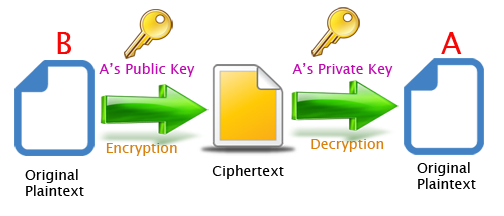Generate Aes Private Public Key Pair
AES is a symmetric cipher, thus only have one key both for encryption and decryption. Asymmetric ciphers like RSA have two keys. A public key for encryption and a private key for decryption. Apr 18, 2017 I want to generate rsa key pair(public and private), and then use them for AES encryption and decryption.e.g. Public key for Encryption and private key for Decryption. How to: Create a public-private key pair.; 2 minutes to read; In this article. To sign an assembly with a strong name, you must have a public/private key pair. This public and private cryptographic key pair is used during compilation to create a strong-named assembly. You can create a key pair using the Strong Name tool (Sn.exe). In some cases the key pair (private key and corresponding public key) are already available in files. In that case the program can import and use the private key for signing, as shown in Weaknesses and Alternatives. In other cases the program needs to generate the key pair. A key pair is generated by using the KeyPairGenerator class. But Web Crypto does not seem to generate a simple AES Private/Public Key pair that enables me to encrypt/decrypt, as is the case with RSA-OAEP for example, where I can generate a public/private key pair. AES-CTR, for example, only generates one key and uses a counter instead of a private key.
To sign an assembly with a strong name, you must have a public/private key pair. This public and private cryptographic key pair is used during compilation to create a strong-named assembly. You can create a key pair using the Strong Name tool (Sn.exe). Key pair files usually have an .snk extension.
Note
In Visual Studio, the C# and Visual Basic project property pages include a Signing tab that enables you to select existing key files or to generate new key files without using Sn.exe. In Visual C++, you can specify the location of an existing key file in the Advanced property page in the Linker section of the Configuration Properties section of the Property Pages window. The use of the AssemblyKeyFileAttribute attribute to identify key file pairs was made obsolete beginning with Visual Studio 2005.
Create a key pair
To create a key pair, at a command prompt, type the following command:
sn –k <file name>
In this command, file name is the name of the output file containing the key pair.
The following example creates a key pair called sgKey.snk.
If you intend to delay sign an assembly and you control the whole key pair (which is unlikely outside test scenarios), you can use the following commands to generate a key pair and then extract the public key from it into a separate file. First, create the key pair:
Next, extract the public key from the key pair and copy it to a separate file:
Once you create the key pair, you must put the file where the strong name signing tools can find it.
When signing an assembly with a strong name, the Assembly Linker (Al.exe) looks for the key file relative to the current directory and to the output directory. When using command-line compilers, you can simply copy the key to the current directory containing your code modules.
If you are using an earlier version of Visual Studio that does not have a Signing tab in the project properties, the recommended key file location is the project directory with the file attribute specified as follows:
See also
Hi all,
The other day a colleague of mine asked me if I had a .NETversion of the C++ sample in How to generate key pairs, encrypt and decrypt data with CryptoAPI post. C++ sample calls CryptoAPI directly (and you know we can do the same thing in .NET through P/Invoke), but the idea was to use System.Security classes in order to get a pure .NET solution. The answer is yes, I have such sample, and here it is:
If you compare both samples you will see that .NET simplifies the task a lot. But sometimes we won't be able to do with System.Security classes exactly the same we can do with CryptoAPI. So don't forget about the API just yet!
I hope this helps.

Kind regards,
Generate Aes Private Public Key Pair Free
Alex (Alejandro Campos Magencio)